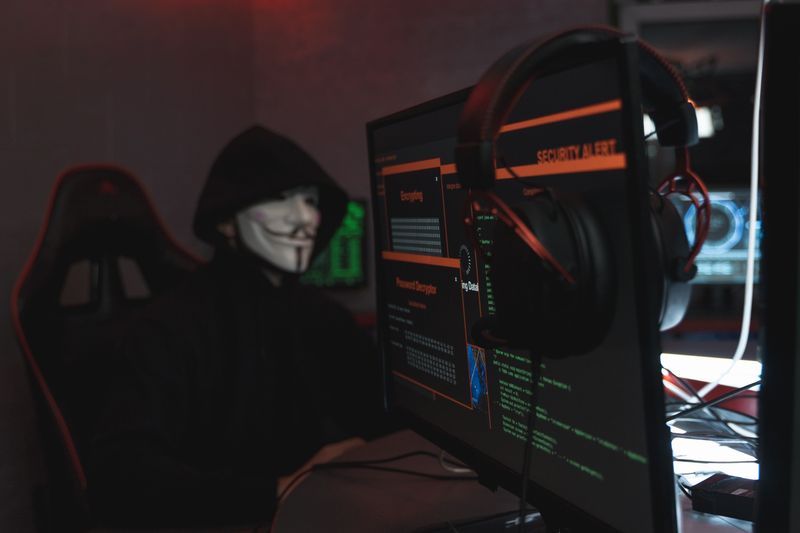Expanding Access to Cybersecurity Training: The Role of Free Courses
From the Ground Up
It is no secret that the cybersecurity industry is facing a severe shortage of skilled professionals. With the ever-evolving threat landscape and the constant onslaught of attacks, organizations are struggling to find individuals equipped to protect their digital assets. The question that arises is how to bridge the gap between the available positions and the skilled talent pool. While formal certification training is typically seen as the gold standard for cybersecurity education, the sheer volume of candidates and the financial constraints make it an unrealistic solution. There simply isn’t enough time, bandwidth, or funding to put every aspiring professional through these costly programs.
The Rise of Free Cybersecurity Training
In recent months, there has been a surge in the availability of free cybersecurity training courses. These offerings aim to provide individuals with the necessary knowledge and skills to kickstart their careers in cybersecurity. Some prominent examples include:
- FedVTE: The Federal Virtual Training Environment offers free courses for US military veterans, government employees, federal contractors, and others.
- IBM SkillsBuild: Using Coursera as a platform, IBM offers free cybersecurity analyst training, along with a range of other IT professional courses.
- Cybrary: Cybrary provides over 500 hours of free cybersecurity courses covering various topics and offering preparation for professional certifications.
- SANS: SANS offers free workshops, “test drive” courses, and a community membership providing access to valuable insights from cybersecurity professionals and instructors.
- Oxford Home Study: Based in the UK, this organization offers several no-cost cybersecurity courses, some leading to potential certification.
These free courses have piqued the interest of many aspiring cybersecurity professionals, offering them an affordable way to gain knowledge and skills in the field. However, one question persists: How far can one go with free courses?
The Limitations of Free Courses
While these free cybersecurity courses can undoubtedly provide a good foundation of knowledge, it is crucial to recognize their limitations. Most often, these courses do not offer formal credentials or certifications, which may be a considerable setback for those seeking immediate validation of their expertise. Although the importance of certifications in cybersecurity has diminished over the years, they still hold value in certain contexts and industries. Therefore, relying solely on free courses may not suffice for those aiming to establish themselves as credible professionals in the field.
Navigating the Path to Success
So, what steps should aspiring cybersecurity professionals take to navigate this landscape effectively? First and foremost, take advantage of the wealth of knowledge provided by free courses. While they may not bestow credentials or certifications, they can serve as valuable starting points for individuals to explore the field.
Additionally, gaining hands-on experience is crucial for both employed and unemployed individuals interested in cybersecurity. Capture-the-flag (CTF) exercises, which simulate real-world scenarios, can offer valuable practical experience and insights into the intricacies of the field. By actively engaging in CTF challenges, individuals can enhance their technical skills and problem-solving abilities, making them more desirable to potential employers.
Furthermore, free courses can help individuals assess their interest and aptitude for cybersecurity. Before investing a significant amount of money in paid courses, aspiring professionals can use free offerings as a testing ground to determine if the field aligns with their passions and goals. This opportunity to explore without a substantial financial commitment is rare and invaluable.
The Role of Paid Courses in Professional Development
While free courses have their place in the cybersecurity training landscape, it is important to acknowledge the unique benefits of paid courses. Professional training that offers in-depth education, comprehensive assessments, mentorship, and accountability can thoroughly prepare individuals for a successful cybersecurity career. These paid programs often offer a structured curriculum that covers a broad range of topics, ensuring a well-rounded foundation of knowledge.
When employees express interest in cybersecurity training, businesses may be tempted to rely solely on free courses to fulfill their requests. While free offerings can be a suitable starting point, organizations must recognize the importance of investing in paid courses that provide a more robust training experience. By prioritizing quality education, businesses can ensure that their employees are equipped with the necessary skills and knowledge to protect their systems effectively.
Maintaining Realistic Expectations
In conclusion, free cybersecurity courses play a vital role in expanding access to training and knowledge within the industry. Aspiring professionals should embrace these free offerings as valuable resources to broaden their understanding and gauge their interest in the field. However, it is important to maintain realistic expectations and supplement free courses with hands-on experience and, when possible, paid courses that offer comprehensive training and credentials. By striking the right balance between free and paid education, individuals can pave the way for a successful cybersecurity career, and organizations can strengthen their cybersecurity workforce.

<< photo by Tima Miroshnichenko >>
The image is for illustrative purposes only and does not depict the actual situation.




